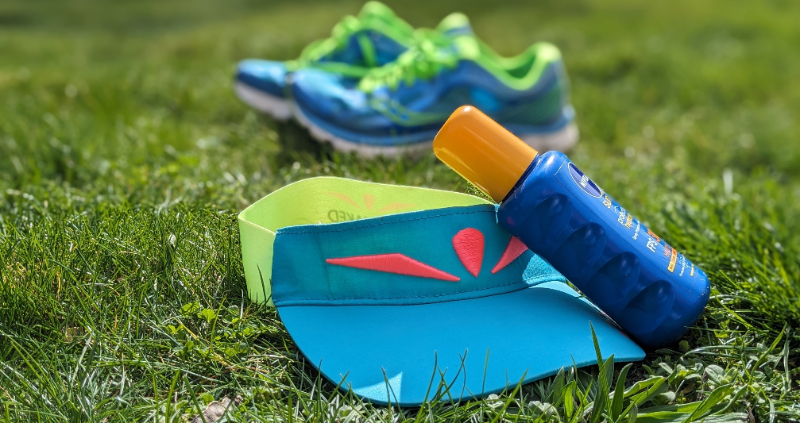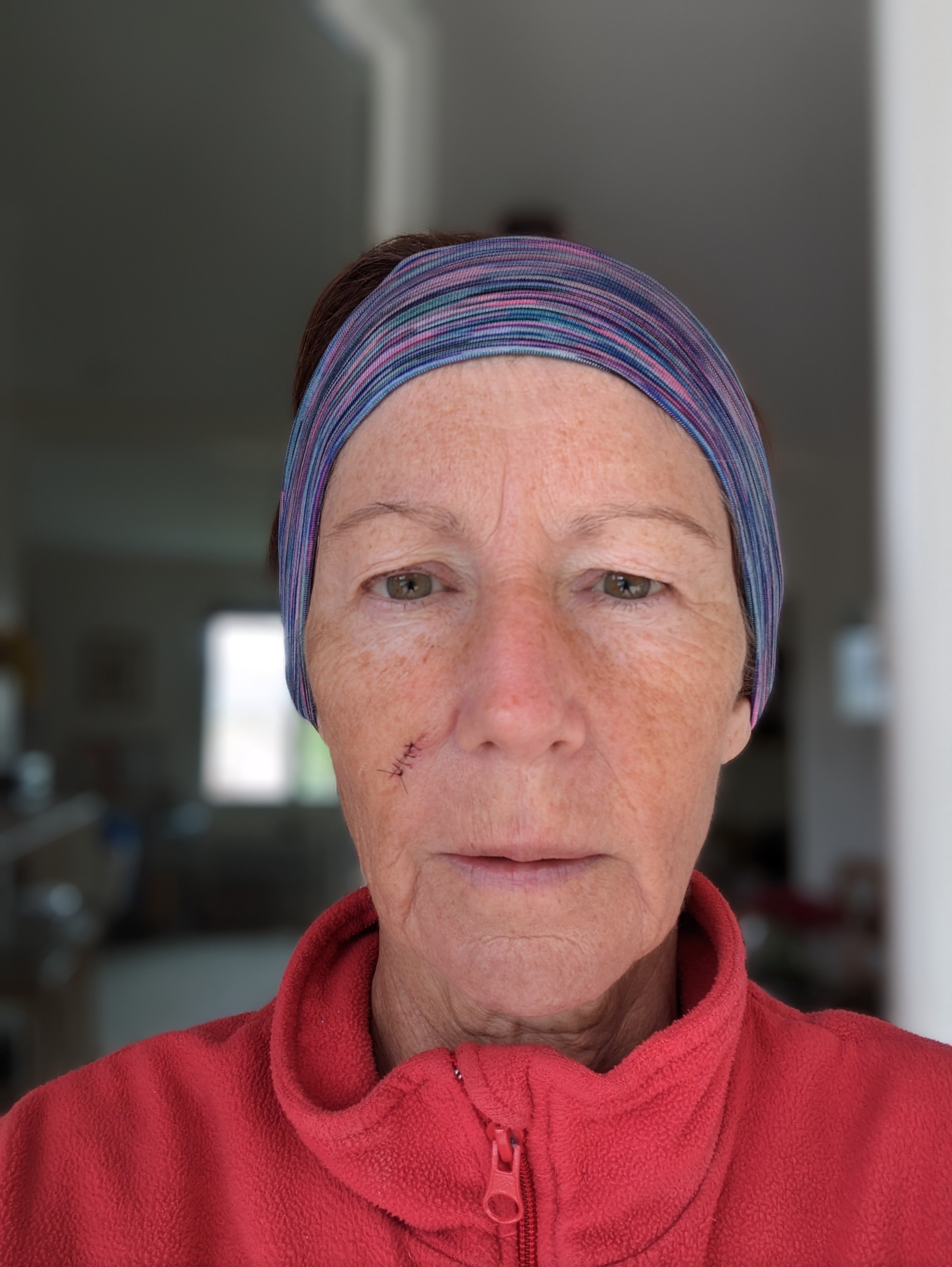Skin Cancer in Runners

If the title skin cancer in runners sounds scary in a way that is good as it is something that all us runners should be aware of and be thinking about. I am one of those runners that has had skin cancer lesions (3 in fact) so I am really keen to raise awareness of the possibility of skin cancer in runners.
In general as runners heading out the door, we often focus on our performance and running kit. However (for which I am very guilty of), we often forget about protecting our skin, which not only increases our risk of skin sun damage and the ageing effects (think of runners face), but also increases our risk for skin cancer too.
Am I at a higher risk of skin cancer because I am a runner?
The simple answer is, yes. Increased sun exposure does put runners at a higher risk of developing skin cancer. This is because they often spend a lot of time outdoors, often forget or don't reapply their sun protection cream and thus put themselves at risk of sunburn and skin damage.
But before you panic, let's take a look at what this means exactly.
Skin cancer is caused by the cumulative effect of the sun's ultraviolet (UV) rays on our skin. Now, running doesn't inherently cause skin cancer, it's more the exposure to the sun's rays, raising the odds of experiencing skin damage and inevitably increasing our skin cancer risk.
According to ARC (International Agency for Research on Skin Cancer), skin cancers are the most common group of cancers diagnosed worldwide. In 2022 there were an estimated 1.5 million new cases of which 330 000 were estimated to be melanomas (the more dangerous skin cancer).
So, what should I look out for?
Skin cancer often begins as an abnormality or change in your skin and there are two main types of skin cancer:
- Melanoma: This is the most serious type of skin cancer but it is also the least common. It is aggressive and often emerges as a large brownish spot with darker speckles. It can also manifest as a mole that changes in color, size, or feel. So, keep an eye on your skin, and if you see anything out of place or that changes or seems new, definitely get it checked out by a health care professional.
- Non-melanoma skin cancer: The two main types are basal cell carcinoma (BCC) and squamous cell carcinoma (SCC) and they are less serious than melanoma. They can be easily treated but it is important to find them early as they can be quite invasive. Non melanoma skin cancer often appear as a flesh-colored, pearl-like bump or as a pinkish patch of skin or as a firm, red nodule or a scaly, flat lesion as in the case of SCC.
 Basal Cell carcinoma on my cheek
Basal Cell carcinoma on my cheekSpotting these signs early can make a world of difference. To give you an example, over the past 3 years I have had 3 suspicious lesions and I had them checked out by my doctor and then subsequently a skin specialist. All 3 were removed under a local anesthetic and all 3 turned out to be basal cell carcinoma. 2 of the lesions were on my shoulders and one was on my face.
Because I went to get them checked early, the scarring is really minimal. The longer you leave it, the more invasive the cancer and thus the more tissue that has to be removed, leading to more scarring.
Given the risks, how then do we prevent skin cancer in runners?
There are several things that we can do to reduce our skin cancer risk.
- Consistently applying a broad-spectrum sunscreen - one that shields us from both UVA and UVB rays - of at least 30 SPF is paramount. I know it can be a chore but think of it as a crucial part of your running routine, just like putting on comfortable running shoes. Slap it on your face and any other exposed areas of skin and repeat every 2 hours.
- Remember, timing matters. Try to time your runs to avoid peak UV radiation hours, typically between 10 a.m. and 4 p.m. But, we know our schedules can't always accommodate this, hence the essential sunscreen application.
- Wearing clothing made of sun protective materiel such as this UPF 50+ Sun Protection Sports T-Shirt is a really great idea. They can block up to 98 percent of the suns rays and means you don't need to worry so much about applying sun cream. I also like wearing UV protection arm sleeves as you can take them on and off easily depending on the weather. Also don't forget a cap or visor and UV-protective sunglasses to protect
your eyes.
- Some medications can make you more sensitive to the sun. If you are taking any medications, be sure to talk to your doctor about the risks of sun exposure.
- Altitude can increase your exposure to UV radiation. If you are running at high altitudes, be sure to take extra precautions to protect your skin.
- Snow and water can reflect UV radiation, increasing your exposure. Be sure to protect your skin even when you are running in these conditions.
- Every month to do a full-body check. The Skin
Cancer Foundation recommends staying vigilant about "ABCDE". Moles or
spots that should be checked out have:
Asymmetrical shape,
Border that is irregular,
Color that varies
Diameter greater than 6 mm, and
Evolution in shape, size, or color,
- Get regular (yearly) skin checks, especially if you have had or have a family history of skin cancer.
(Please note that as an Amazon associate I earn from any qualifying purchases)
While the link between running and skin cancer might feel frightening, there's no need to stop running outdoors but just make sure to be observant of any skin changes and to take measures to reduce your risk as much as possible. Remember also, that when caught early, skin cancer is highly treatable.
It is important to note that I am not a medical professional and this information should not be taken as medical advice. If you have any concerns about skin cancer, please consult with your doctor.
- Home
- Running Safety
- skin cancer in runners

